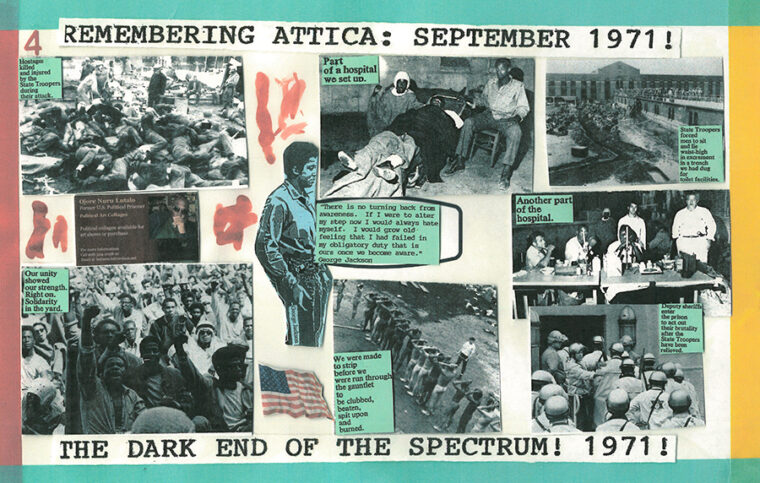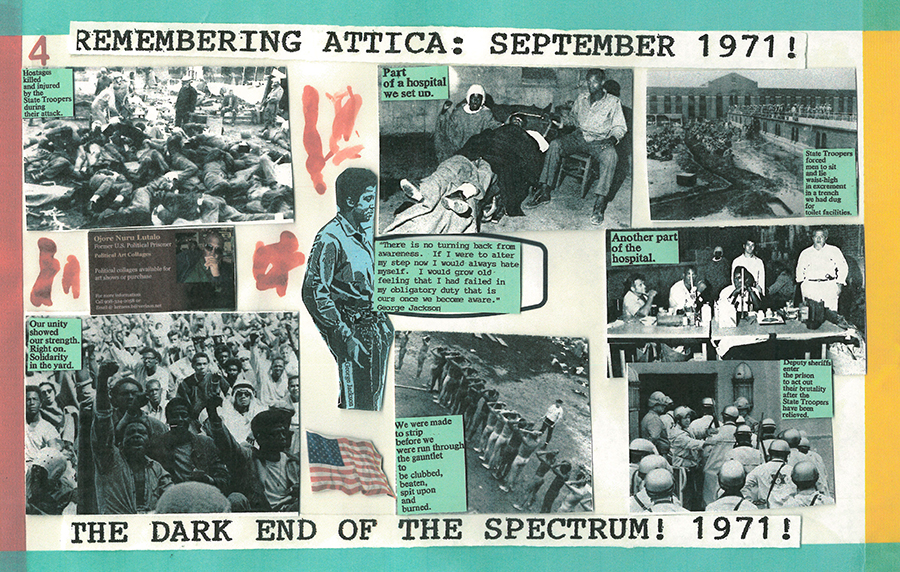New Play Revisits 1971 Attica Prison Riot


Edward Torres, an assistant professor of the practice in theater, can’t help but be moved when he performs the words of L.D. Barkley, a prisoner who played an important role during the 1971 Attica Prison riot, raising morale for incarcerated men protesting their mistreatment.
“We are men! We are not beasts and we do not intend to be beaten or driven as such,” Barkley said in 1971 shortly before he was killed by police.
For Torres, the most devastating part of performing the new play Echoes of Attica is to know that every word is real.
“This is a piece of history I am reliving,” Torres said. “It comes alive on the page because of that. It’s very powerful. The emotion is all there in the words, so you don’t have to overdo it.”
The play, written and directed by Professor of Theater Ronald Jenkins, will be performed at 3 p.m., Sunday, September 12 in the Ring Family Performing Arts Hall at Wesleyan’s Center for the Arts. Admission is free for Wesleyan students, faculty, and staff.

The cast features the formerly incarcerated actors and musicians Darío Peña, BL Shirelle, Naomi Wilson, and Crystal Walker, who all take on multiple roles in the play.
This event is part of “Remembering Attica: Legacy of a Prison Revolt,” a series of events commemorating the Attica anniversary, including lectures, films, and “Behind Enemy Lines: The Prison Art of Ojore Lutalo,” an exhibition of prison protest art by Ojore Lutalo, in the South Gallery of the Ezra and Cecile Zilkha Gallery. The exhibition will be on display on campus from Tuesday, September 21 through Sunday, October 17. Lutalo will give an artist talk at the opening of the exhibition at 4 p.m. on Tuesday, September 21.
In September 1971, 2,200 prisoners took over the state prison at Attica, New York, demanding better living conditions and political rights, holding 42 staff members hostage. Negotiations with prison officials broke down and the state police took back the prison by force. Forty-three people were killed in the riot, the vast majority by the police.
Jenkins, who has facilitated theater workshops in Italy, Indonesia, and the United States for over a decade, saw the potential in the story after listening to Attica survivors speak about their experiences. Working with the cast and hearing their personal stories of police abuse, medical mistreatment, and general degradation at the hands of authorities, offering an added dimension to the script.
Peña spoke of being thrown down the stairs and having his ribs broken. Shirelle talked about being beaten. Wilson never thought she’d survive prison and rewrote her obituary fifteen times. There is nothing theoretical in their rehearsal conversations.
Jenkins believes that the heart of the play rests with the music. Gospel songs performed by Wilson and rap music written by Shirelle provide an important piece of the story’s emotional journey. “The songs come from a place of sincerity,” Shirelle told a preview performance audience. “They are real. I spent ten years in prison and when I wrote the song about medical mistreatment in prison, it was easy because I had seen it all so many times.”
In addition to the emotional truths unearthed by the actors, there are the literal truths found in the script. Jenkins crafted the play using thousands of pages of reports, FBI files, and interviewing survivors of the prison. The records are poignant, disturbing and, in some instances, just absurd. (Jenkins points to a conversation where President Richard Nixon congratulated New York Governor Nelson Rockefeller for his good work on handling the riot despite the deaths of innocent people.)
While the play might explore the past, the ills of the present are never far away.
“It’s important to remember that Attica is not just about the past. Attica is about the present, the things that are happening right now, things that are being done every day in the criminal justice system,” Jenkins said. “It helps us understand the origins of the violence that the state commits against communities of color.”
The play will be published in Spring 2022 by MIT Press in Performing Arts Journal.
The performance is supported at Wesleyan by the African American Studies Program, the Film Studies Department, the Theater Department, the Art Studio Program of the Art and Art History Department, the Music Department, the Center for the Arts, the Feminist, Gender, and Sexuality Studies Program, the History Department, the Science in Society Program, the Center for Pedagogical Innovation, the Provost’s Committee on Equity and Diversity, and the Allbritton Center for the Study of Public Life.

